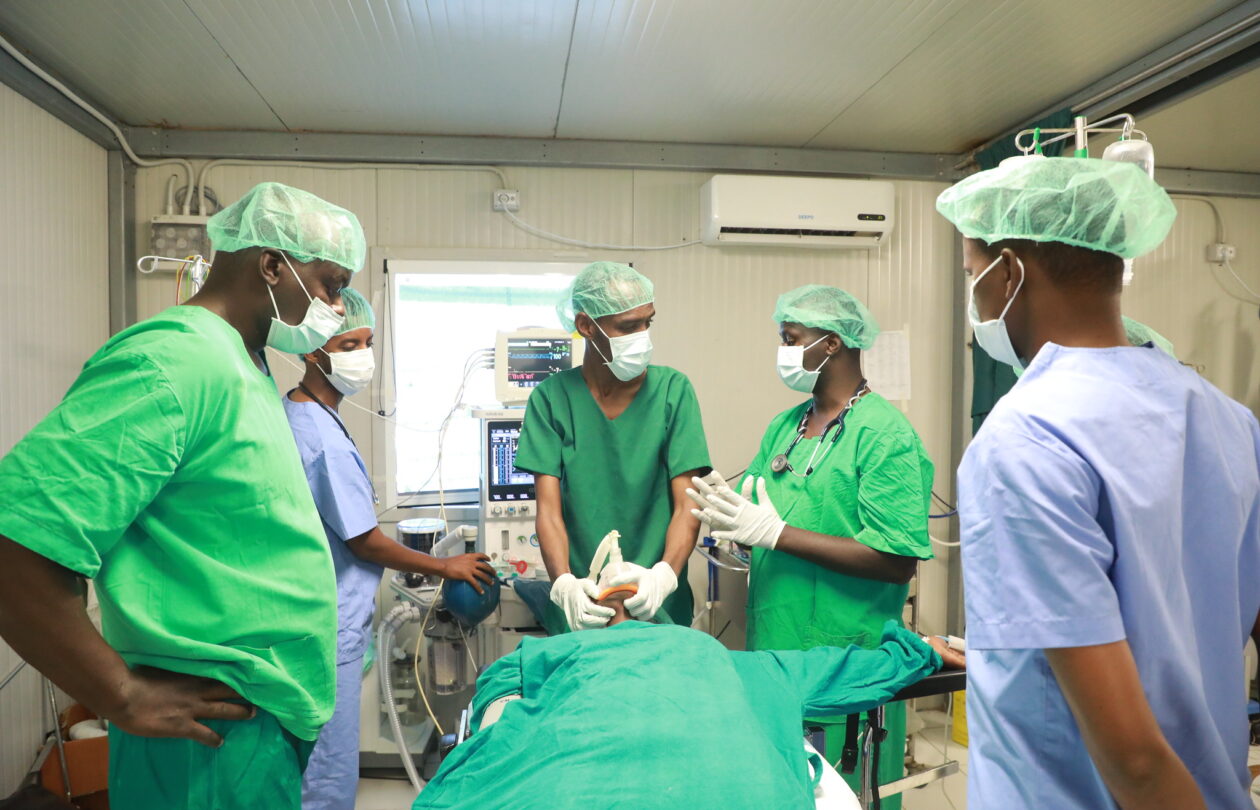Dhobley, Somalia – Shamso Dubbo and Abdi-Kadar Mohamud are two young healthcare heroes who’ve turned the tables on their own struggles. After graduating from a nine-month medical mentorship programme at AUSSOM’s Level Two Hospital in Dhobley, the two have returned to their hometown – not as patients, but trained healthcare providers.
The young Somali medics are among 46 beneficiaries of the medical mentorship programme administered by the Kenya Defence Forces (KDF) medical doctors serving with the African Union Support and Stabilisation Mission in Somalia (AUSSOM). The medical mentorship programme, launched in February 2022, is part of a broader initiative to alleviate the shortage of health workers by training local medical personnel.
The intensive course combines six weeks of classroom instruction in core medical subjects such as anatomy, physiology, pathology, and ethics, with four months of practical clinical experience in chosen specialties.
From Dental Pain to Dental Care
For 33-year-old Abdi-Kadar, the journey into healthcare provision was deeply personal. Growing up in Dhobley along the Somalia-Kenya border, he suffered from chronic dental complications worsened by lack of local dental specialists. His turning point came during his hospitalisation at AUSSOM Level Two Hospital in 2023.
“I had pain in my premolar teeth, and I couldn’t find anyone to treat me properly,” Abdi-Kadar recalls. “I was admitted to the hospital for treatment, and after that, I requested to join the mentorship program.”
Abdi-Kadar’s request was granted for the 2024 intake. Under KDF medical mentors, he trained in basic dentistry and oral healthcare. Abdi-Kadar now offers dental services once unavailable in the region – fillings, extractions, full-mouth scaling, and treatment for oral diseases.
“These are the kinds of skills our community desperately needs,” he says. “And now, I’m proud to be the one providing them.”
Empowering Women’s Health
Shamso Dubbo, 26, was one of the participants of the mentorship programme, taking up midwifery and ultrasound. Her goal: to reduce maternal deaths and encourage preventive care among women in Dhobley, where many only seek medical help when complications arise.
“I studied midwifery and ultrasound for nine months at the AUSSOM Level Two Hospital,” Shamso says. “It was a great opportunity, especially because very few women here are trained in gynaecology and maternal health.”
Now working at the Dhobley General Hospital, Shamso advises pregnant women to attend regular checkups and follow medical guidance throughout their pregnancy.
“This village is small, and most women don’t visit the hospital, unless something is wrong. My job is to change that mindset—to educate, support, and provide care before complications arise,” she says.
Training for a Healthier Future
The mentorship programme is a critical part of the Somalia Transition Plan, aimed at
building local capacity ahead of the expiry of the African Union mission’s mandate. Key areas of focus include wound care, dentistry, pharmacy, midwifery, physiotherapy, nursing, orthopedics and laboratory science.
“We received applications from community members and began with a foundational course in ethics and basic medical sciences. Those who passed moved on to specialised training. The goal is to ensure that as ATMIS phases out, these skills
stay behind,” said Major Dr. James Waweru, Senior Medical Officer at AUSSOM Level Two Hospital in Dhobley.
A Community Transformed
Today, Dhobley General Hospital-previously strained by staffing shortages- has seen a marked improvement, thanks to the continued support and training from AUSSOM KDF medics.
“AUSSOM Level Two Hospital has been a great support for us, the nurses and doctors trained through this program are now working in various departments, and their presence has really improved the quality of care,” said Dr. Abdinasir Mohamed, the Director, Dhobley General Hospital.
Habiba Iska Sanay, a 26-year-old mother from Slaba Internally Displaced Persons (IDP) camp, was overjoyed after receiving malaria treatment and her one-year-old son vaccinated with MMR to protect him against measles, mumps and rubella.
“I came here for treatment and was cared for by Dr. Khadar. I was treated well. In our camp, we have little access to medicine but here, I received excellent care from young doctors who really know what they’re doing,” says Habiba with a broad smile.
Alongside Abdi-Kadar and Shamso, nine graduates of the medical mentorship program now work at the Dhobley General Hospital, while another four work in Dhobley’s private clinics, boosting the region’s healthcare access.
Inspiring the Next Generation
Brigadier Seif Salim Rashid, the AUSSOM Sector Two Commander, highlighted the
mentorship’s effect on the community.
“These graduates have not only brought new medical capabilities to Dhobley, but they’ve also inspired others. We’re seeing more people applying for the next training intake, especially women,’’ said Brigadier Seif.
‘’The success of these two young professionals has sparked a new wave of motivation across the town.”
According to AUSSOM Level Two Hospital commandant, Lieutenant Colonel Jared Kebaso, the KDF contingent will continue the program to build local staff capacity ahead of the African Union forces’ exit from Somalia.
In a region plagued by limited access to quality healthcare, the two young Somalis have transformed their personal hardships into hope for the community.
Shamso and Abdi-Kadar’s success stories are powerful reminders of what happens when opportunity meets dedication. The once needy patients are now beacons of healthcare services their community has long sought after.
















